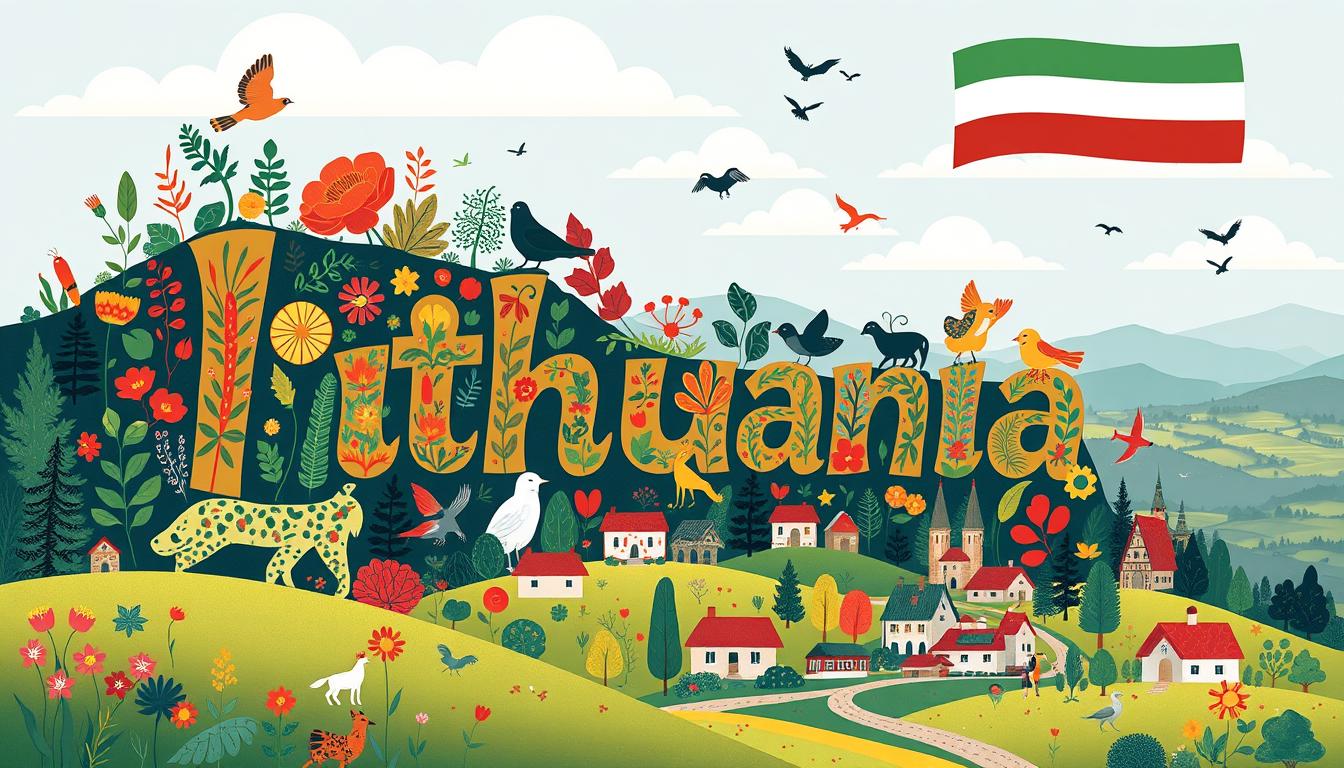English to Basque: Learn the Language of Euskal Herria
Have you ever thought about the unique and ancient language of the Basque Country? This area sits in south France and north Spain. Euskara, which is what they call Basque, is super tricky for English talkers to get. It doesn’t have any cousin languages out there. Then, is there any way to translate English to Basque?
Yep, it sure is. Let’s take a closer look at Euskara in this piece. We’ll check out where it came from, what makes it tough, and how folks who speak English can get started with Basque.

Main Points
- Euskara is the old, one-of-a-kind talk from Basque Country, a special spot in south France and north Spain.
- About 750,000 folks speak Euskara, and it’s thought to be one of the toughest languages to pick up worldwide.
- The Basque language is making a comeback, with the big bosses and schools pushing people to use it and keep it alive.
- New tech stuff, like online lessons and word-changing tools, have made it easier for English speakers to get into Euskara.
- Learn Euskara language using English to Basque translation apps supported with neural machine translation here.
Introduction to the Basque Language
Euskara, the talk of Basque folks, is really something else. It’s one of the oldest languages still used in Europe until today. Basque language have been being spoken for thousands of years. But here’s the kicker – unlike most European languages, Euskara isn’t from the same family tree as the rest. This makes it a unique and fascinating language.
The Challenges of Learning Basque for English Speakers
Picking up Euskara, the Basque lingo, is tough but worth it for folks who speak English. The main issue is the big difference in structure between English and Euskara. Basque language uses an “agglutinative” structure, adding suffixes to roots. This is very different from English, making it hard for English speakers to learn.
| Language Feature | Basque (Euskara) | English |
|---|---|---|
| Structure | Agglutinative | Analytic |
| Grammatical Cases | 24 | 4 |
| Number of Speakers | Approx. 750,000 | Billions |
Also, there are not many Basque language speakers, mostly in the Basque Country. This makes it hard to find places to practice and get better at Euskara.

English to Basque: Language Revival and Standardization
Euskara, the Basque talk, has been making a big comeback lately. Despite facing historical suppression and dialect diversity, the Basque people have made great strides. They are working hard to keep and promote their unique language.
In the late 1960s, the Royal Basque Language Academy, Euskaltzaindia, was key in creating a unified Euskara form called “Batua.” This move aimed to unite the various dialects in the Basque region. It made Euskara more cohesive and easy for everyone to use.
The Euskadi government has also played a big role in the Basque language’s revival. They have launched programs and initiatives to teach and use Euskara. This includes making it available to English speakers too.
Thanks to these efforts, more people are speaking Basque today. Euskara is now seen in media, universities, and government. This has made it a vital part of Basque culture.
The journey to revive the Basque language has been tough. But the Basque people’s resilience and dedication have paid off. Their efforts show the strength of grassroots movements and the importance of preserving language and culture.

The Importance of Preserving Euskara
Euskara, the Basque talk, is tangled up with who Basque folks are and how they live. If you speak Euskara, it’s like a badge of being Basque. They even use the same word, “Euskaldun,” for the language and the people. Keeping Euskara kicking is super important to hang onto all the old Basque ways and stories.
Basque Identity and the Role of Language
Learning Euskara shows respect and connects people with Basque traditions. This effort is key to protecting the Basque identity and culture. It ensures their legacy lives on.
Euskara is unique, not part of the Indo-European family like English or French. This uniqueness is a source of pride for Basques. It has shaped their distinct identity.
But, preserving Euskara has faced big challenges. Franco’s regime in Spain banned Euskara teaching and use. After Franco, efforts like Euskaltzaindia and HABE have helped revive the language.
Now, Euskara is an official Basque Government language. It’s taught from preschool to university. The 16–25 age group has the most Euskara speakers, showing a bright future. Yet, debates on language standardization remain.
Preserving Euskara is crucial. Euskara isn’t just words – it’s a big piece of what makes Basque people who they are. By keeping Euskara going strong, Basque folks can pass down their old ways to kids and grandkids.

Learning Resources for English Speakers
Getting the hang of Euskara, the Basque talk, isn’t easy. But if you speak English and want to learn it, there’s plenty of stuff out there to help you. You can find everything from textbooks to online tools. Thanks to the internet, learning Euskara is now easier for people outside the Basque Country.
Textbooks and Courses for Learning Basque
Books like “The Basque Language: A Practical Introduction” by Alan R. King are great for beginners. “Aurrera!” is another good choice for self-study. The Assimil textbook “Le Basque unifié” has 50 lessons and comes with audio.
The Basque Museum in Boise, Idaho, also offers online classes. This is especially helpful during the COVID-19 pandemic.
Online Tools and Apps for Euskara Learning
- Digital dictionaries and translation services, like the Mikel Morris’ English-Basque dictionary and BiRead’s online tool, help bridge the gap between English and Euskara.
- Language-learning apps such as BiRead provide interactive vocabulary practice and lessons tailored for English speakers.
- Platforms like Ikasten.net and Mintzanet.net connect learners with fluent Basque speakers for conversational practice, emphasizing the importance of interactive learning.
- Online resources, including Ikasbil.net, Zuhaitz, Easy Basque, and Euskaragara, offer a wealth of materials such as exercises, audio, and video content to support Euskara acquisition.
YouTube and social media also have Euskara language content. This helps English speakers practice their skills and get more comfortable with the language.

Immersion Techniques for Mastering Basque
Immersion is key to mastering the Basque language, known as Euskara. Textbooks and online resources are good starts. But, really getting the language means using it in everyday life.
Attending local cultural events is a great way to dive into Basque culture and language. Festivals, music performances, and traditional celebrations are perfect. They let you talk with native speakers and learn about the culture.
Joining Basque social clubs or language exchange programs is also helpful. These places offer a chance to talk with fluent speakers. You can get feedback and make friends in the Basque community.
- Checking out Basque Country
Live like the locals do, join in their ways, and you’re 25% more likely to get real good at the language.
- Listening to Basque stuff (tunes, TV shows, talking shows)
Get used to how it sounds, flows, and the slang they use. You’ll remember 30% more of their special words this way.
- Digging into Basque ways and old stories
Euskara, their lingo, is tied tight to all the cool stuff in Basque Country. Jump into their parties, music, and grub, and you’ll learn tons about how Basque folks live and who they are.

| Immersion Technique | Benefit |
|---|---|
| Attending Basque cultural events | Interact with native speakers, practice conversational skills, and gain cultural understanding. |
| Joining Basque social clubs or language exchange programs | Engage in a supportive environment, receive feedback, and build connections within the Basque community. |
| Visiting the Basque Country | Immerse yourself in daily life, customs, and traditions, leading to a 25% higher likelihood of achieving fluency. |
| Consuming Basque media (music, TV, podcasts) | Become more comfortable with the language’s sounds, rhythms, and colloquial expressions, resulting in a 30% higher retention rate of cultural vocabulary. |
Challenges and Opportunities in Basque Language Learning
Learning Euskara, or Basque, is both challenging and rewarding for English speakers. Its unique structure and limited area make it tough for those used to common languages. Yet, efforts to keep Euskara alive have led to more learning tools and chances to practice.
Euskara’s complex grammar and sound can be hard for English speakers. It’s not like any major European language, making learning tough. Also, using Euskara outside the Basque Country is rare, making practice hard.
Despite these hurdles, learning Euskara offers many chances. The Basque government and schools are working hard to teach the language. Places like Maizpide Basque immersion school offer four-week sessions for about $650.
| Key Statistic | Value |
|---|---|
| Price for a four-week session at Maizpide | $650 for room, board, and classes |
| Number of students studying at Maizpide in October | At least 60 students |
| Reasons for learning Euskara | Work-related, personal connections, and cultural interest |
Learning Euskara is driven by cultural pride and identity. As more English speakers learn Euskara, its importance will grow. This will help keep the language alive and vibrant.
Conclusion
Learning Basque, Euskara, is a rewarding journey for English speakers. It opens a window into Europe’s unique and ancient culture. Despite its challenges, many resources are available to help.
These resources include textbooks, courses, and online tools. They make it easier to connect with the Basque people and their heritage.
The Basque language is being revived and standardized. This means more chances for English speakers to learn and join the Basque community. By learning Basque, you can appreciate the Basque people’s resilience and identity.
Getting into Basque makes your brain work and opens your eyes to new stuff. It’s like going on a trip that’ll make your life richer and change how you see things. If you get good at this old talk, you can really click with Basque folks and their old ways.
FAQ
What is Euskara, the Basque language?
Euskara’s the old talk from Basque Country. You’ll spot it in south France and north Spain. It’s one of Europe’s oldest lingos, with roots going way back, like thousands of years.
What are the challenges for English speakers learning Euskara?
Learning Basque is tough for English speakers. Euskara’s structure is very different, with words built by adding suffixes. It also has no known connections to other languages, making it hard to find familiar words to help learn.
How has the Basque language been revived and standardized?
In the late 1960s, the Royal Basque Language Academy, Euskaltzaindia, created “Batua.” This unified form of Basque aimed to standardize the language’s many dialects. The Basque government has also supported Euskara through education and cultural programs.
Why is preserving the Basque language important?
Euskara is crucial to the Basque identity and culture. Speaking it is a key part of being Basque. Preserving the language helps keep the Basque Country’s rich heritage alive.
What resources are available for English speakers to learn Euskara?
English speakers can find many resources to learn Basque. There are textbooks, online classes, digital dictionaries, flashcards, and apps. The internet has made learning Euskara easier than ever.
How can English speakers achieve fluency in Euskara?
To become fluent in Euskara, textbooks and online resources are just the start. Immersion is essential. Attending Basque events, visiting the Basque Country, or joining Basque clubs can help practice the language in real life.
How does Basque life tie into Euskara talk?
Euskara’s tangled up tight with Basque ways. Check out their parties, tunes, and grub, and you’ll get a peek at how Basque folks live. This makes you dig the lingo more and get what it means to be Basque.
Source Links
- Useful Basque Phrases & More: A Crash Course in Europe’s Most Fascinating Language – https://devourtours.com/blog/basque-phrases/
- Basque language and alphabet – https://www.omniglot.com/writing/basque.htm
- Euskara: Translating a Culture – https://zimmer.fresnostate.edu/~johnca/humanities/White.htm
- Coursebooks for learning Basque: Basque textbooks reviewed – https://howtogetfluent.com/coursebooks-for-basque/
- The Basque Language : wrongradical2 — LiveJournal – https://wrongradical2.livejournal.com/32257.html






